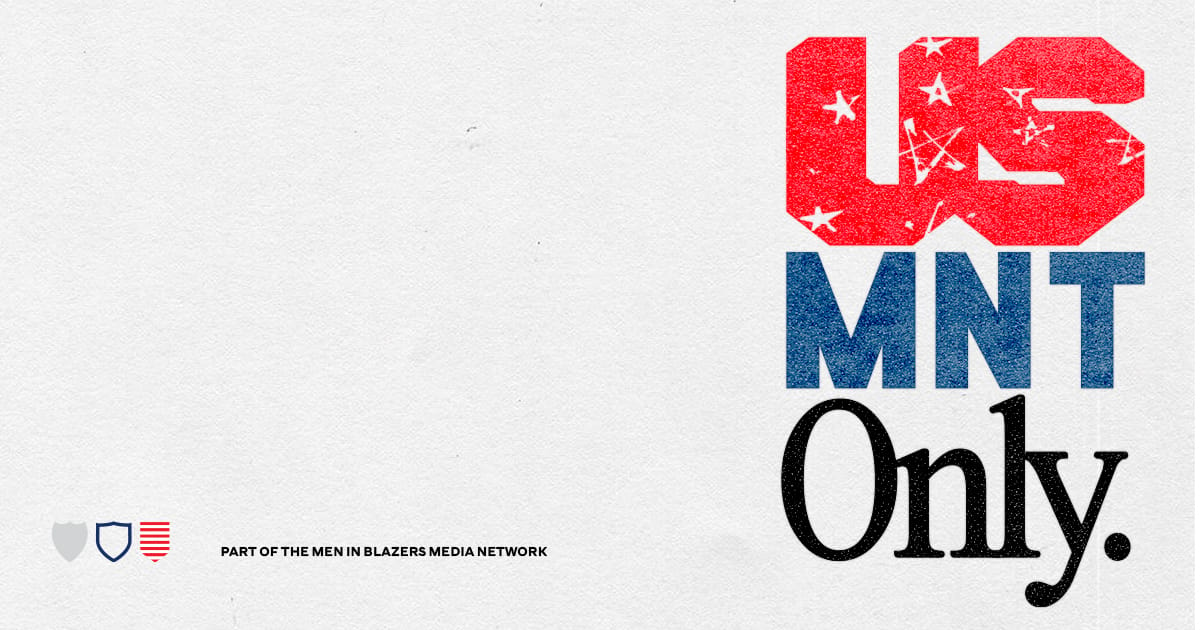Greetings from Yorkshire
Rory Smith writes: There’s an old rhyme that we learn fairly early on at school in Britain, a sort of mnemonic designed to help kids learn the fates of the six wives of Henry VIII. It’s the sort of thing that may not have made it across the Atlantic, and it is also the sort of thing that does not give the impression that this is actually a proper country, rather than a sort of MMRPG historical theme park.
It goes like this: divorced, beheaded, died, divorced, beheaded, survived. I think of it every few years, whenever the England national team changes managers. The rhythm can be borrowed to track the destinies of the recent occupants of that almost equally cursed post: fired, umbrella, resigned; fired, pint of wine, survived.
It occurs to me, though, that it might work equally well in the context of Tottenham Hotspur. This has been a rough week for those people who, over the course of last season, Rog and I learned to identify as Postecoglouites. At least their apostle could leave with his head held high and a great gleaming trophy in his fist. Postecoglou has managed both to be fired, and to survive. Now they must just try to work out quite what the fate of his successor will be.
Enjoy,
Rory
The Character Assassination Arc of Ange 📉

The Premier League telenovela moves so fast that the days when Ange Postecoglou felt like a fresh, urgent new voice already feel impossibly remote. It was, in fact, less than two years ago that the Australian was being heralded as a new paradigm of a manager – grounded, straight-talking, emotionally intelligent – but it already seems as ancient and absurd as the idea that the sun is pulled across the sky by a pair of giant, winged horses.
It’s important to remember what Postecoglou was, though, in order to understand the warning in what he became. Few managers, other than maybe Pep Guardiola and Jürgen Klopp, have been granted such a universally warm welcome to the Premier League. England, and English football, can be insular, skeptical, inherently hostile to the new, the different, the unfamiliar.
Postecoglou, unlike Guardiola and Klopp, was all of those things. His journey to England had been unorthodox. It had started in Australia, for one thing, which is not a place that English fans regard with any great reverence when it comes to soccer. He had forged his reputation in Japan, which is not a league which permeates the English consciousness. He had finessed it in Scotland, which has come to be seen as a backwater.
And yet all of that, rather than being held against Postecoglou, was held up instinctively in his favor. He was presented as proof of the sport’s innate meritocracy; his experience came to be seen as worldliness. In many ways, I think, he told English soccer a story about itself that it wanted to hear: he was proof that our eyes had been opened and our borders collapsed, that we had moved past our old prejudices and stereotypes.
As early as July 2023 – so before he had actually managed a competitive game for Spurs – he was being described by The Athletic as a “skilled public speaker.” In those first few months in London, when his team seemed to sweep all before them, he was hailed as a beacon of common sense. V.A.R., he said, is “ruining the football experience.”
He seemed wonderfully free of jargon, of management speak, of excuses. He made it clear that he would play soccer his way or no way at all; he was happy to discuss the idea that the journey was as important as the destination. He gave Spurs fans the sense that they were going somewhere, that their club stood for something once again, and he gave rival supporters the feeling that they might quite like it if their team took a similar approach. He spoke clearly, honestly. Even Daniel Levy, his chairman, seemed to be swept up in the enthusiasm. Postecoglou, he told a fan forum, was a “breath of fresh air.”

It did not last, of course. Within a year, or perhaps a little more, a significant minority – at the very least – of Spurs fans had grown tired of seeing their team scuppered by the same shortcomings, the same flaws, every single week; by the time 2025 rolled around, there were already dark hints that Levy’s patience might be wearing thin.
Postecoglou no longer seemed such a compelling, engaging figure; he was pilloried for making the promise, in an interview with the Sky Sports reporter Natalie Gedra, that he “always” won a trophy in his second season. He was combative, sometimes unnecessarily so, in his media engagements. He developed an unfortunate habit of refusing to look his interlocutors in the eye.
He squabbled, more than once, with his own team’s supporters. He delivered the trophy, in the end, just as he had vowed, but it was not enough. Levy took a couple of weeks to “reflect” on what that might signify, and then fired him anyway.
In the aftermath, there has been a tendency to place the blame for that drastic gear-change on Postecoglou: his fealty to his principles has been cast as stubbornness and/or naivety; his roundabout route to the summit, once so character-building, has been retrofitted as proof of his inexperience; what once seemed like a pleasant refusal to indulge soccer’s nonsense has come to be seen as rudeness.
Some of that is probably fair, but it does rather not only fail to break a fourth wall but even to acknowledge its presence. It is hard to come up with a term that captures the wall of noise – the commentary and the analysis, the provocateurs and the punditocracy – that surrounds the Premier League, but the Hot Take Industrial Complex will do as well as anything else. Modern elite soccer is subject to the most intense scrutiny imaginable; every morsel of information, every slight development is picked up and torn apart by a media industry that reached saturation point some time ago.
What happened to Postecoglou is, in part, related to his own failings, his inability to adapt in time to changing circumstances, the consequences of his own decisions. Spurs were 17th in the Premier League, his dismissal is hardly inexplicable.
But it is partly, too, fairly chilling proof of how impatient soccer has become, how restless, how eager it is to build its heroes up so that it can knock them down. Postecoglou is proof of how the Hot Take Industrial Complex chews up and spits out characters at an ever-quicker rate. He was, most likely, never the savior he was painted to be. But nor was he the failure that he became.
As Thomas Frank, the Brentford manager, weighs up whether to accept the offer to replace Postecoglou, he will doubtless have reflected on just what a challenge it is to manage Spurs at this moment. He will know that a trophy will not be enough to save him; that his performance analysis, at least internally, will rest on where the club finishes in the Premier League, not how it fares in any other tournament.
But he will know that is not the only challenge, the only risk. Frank is an excellent communicator, too. He is open, and charismatic, and charming. He is incredibly smart, a natural delegator, enormously emotionally intelligent. He is almost impossible to dislike. It is hard to see how he could be criticized, how anyone will turn on him. He will know from what happened to Postecoglou, though, that is no guarantee of immunity.
Excited for the 2026 World Cup? Our newly-launched weekly USMNT Only newsletter is your go-to source for backstories, insights and narrative surrounding Poch’s squad in their run to (hopeful) glory. Subscribe now. 🇺🇸
Pep Talk ✌️

It’s been slightly curious to watch two stories play out simultaneously in the Premier League transfer market this week. One has been resolved promptly, and with the minimum of fuss: Rayan Cherki, a player who has been earmarked for greatness since he was 16, has left Lyon to sign for Manchester City in time to play in the Club World Cup.
He has done so for the frankly bargain price of $41 million. Cherki’s numbers in Ligue 1 last season were astonishing: not just the 12 goals and 11 assists over the course of the campaign, but the fact that he created more “big chances” than anyone else, even the members of that all-conquering, star-studded Paris St-Germain side.
He celebrated all of that by single-handedly staging a one-man fightback for France against Spain in the Nations League: the French were losing 4-0 when he entered the field in Munich last week, and ended up losing the game 5-4. Cherki is, without doubt, extremely talented indeed; he seems, at last, to have found a way to harness those gifts to devastating effect.
At the same time, City appears to be figuring out how to – let’s use the Paltrowism here – consciously decouple itself from Jack Grealish. English football’s great lost boy has, in effect, disappeared completely over the last few months; he was, perhaps most tellingly, ignored completely by Pep Guardiola even as he sought to rescue the FA Cup final last month.
Although his star has waned in the last couple of years, there are parallels between Grealish and Cherki. Both have a slightly maverick air about them. Both, you sense, might be best served as the focal point of a team, rather than being turned into just another cog in even a perfectly smooth-running wheel. It is hard not to feel that Grealish was wasted, just a little, at City, the things that made him so exciting dulled by his cooption into Pep’s system. It will be fascinating to see how Guardiola avoids inflicting the same fate on Cherki.
When (Hungry) in Tottenham 🥯
In the 20 years or so that I’ve been going, occasionally, to what I still think of as White Hart Lane, two things have struck me: one is that Tottenham as a whole feels a little more resistant to the tides of gentrification that have swept remorselessly through the rest of London than might be expected; the other, counter-intuitively, is that the food has notably improved.
If I’ve managed to navigate the tube successfully and arrive in enough time to get something to eat outside the stadium, my favored spot is an organic food shop and (I think) Kurdish snack joint called Fieldseat: the coffee is good and strong, you can ordinarily acquire some sort of sweet treat, and the simit – a sort of seeded Middle Eastern bagel – will keep you going even through the most confrontational post-game press conference.
What I’ve Been Reading 📚
Jonathan Liew’s heartfelt assessment of the ideological consistency of Postecoglouism.
A fascinating account of how the US and China misunderstand each other, through the lens of what sounds like quite a good movie.
What do you get if you like soccer but consume too much TikTok?
And What I’ve Been Writing ✍️
The British summer used to be free of soccer. This is no longer the case.
Cristiano Ronaldo ended up winning the Nations League again. He cried. He does not look ready to retire.
That’s all for this week. Thank you so much for reading, and for listening. If you have any questions, whether they’re about soccer or about food, then please feel free to send them along to [email protected] - they’re all more than welcome.
Rory
Discover the Trends Shaping Tomorrow
Art, music, sports, entertainment, movies, and many other subjects—these elements define who we are as a society and how we express ourselves as a culture. Take a deep dive into the topics shaping our shared norms, values, institutions, and more.


